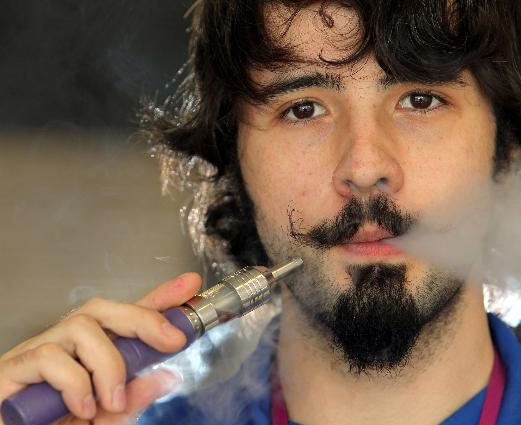Don't fall for tobacco industry e-cigarette smokescreen
Michaeline Fedder, Deborah P. Brown and Bonita Pennino
No one should have to choose between their health and a paycheck. Which is why, with all that is still unknown about the dangers of e-cigarette use, we must put public health first and prohibit the use of these unregulated products in all workplaces, including restaurants, bars and casinos. Unfortunately a bill recently passed by the Baltimore City Council purporting to ban e-cigarette use in the city allows restaurants, taverns and casinos to opt out, which not only weakens Baltimore and Maryland’s longstanding and popular smoke-free laws, it threatens the health of many city workers. We urge Mayor Rawlings-Blake to see through the tobacco industry smokescreen and use her power to veto this ordinance.
Turning the clock back by allowing the use of e-cigarettes in public places could create a host of new problems — encouraging new tobacco users, reversing efforts that have made smoking socially unacceptable, creating enforcement confusion for business owners and the public, and potentially putting the health of Baltimore’s restaurant, bar and casino workers and patrons at risk.
While e-cigarette manufacturers may make unverified claims that the ingredients are just “water vapor” or “safe,” without further research and federal regulation there is no sure way for e-cigarette users to know what they are consuming. Nor is there any way of knowing what nonusers are exposed to and the extent of the risk to their health. There are hundreds of types of e-cigarettes on the market today, and the products vary considerably by ingredients and quality control and assurance. Prohibiting the use of e-cigarettes in workplaces, restaurants and bars can protect the public health by preventing nonusers from being exposed to the potentially harmful chemicals in these products.
An increasing number of studies have examined the contents of e-cigarette aerosol. Unlike a vapor, an aerosol contains fine particles of liquid, solid or both. Propylene glycol, nicotine and flavorings were most commonly found in e-cigarette aerosol. Other studies have found the aerosol to contain heavy metals, volatile organic compounds and tobacco-specific nitrosamines, among other potentially harmful chemicals. A 2009 study done by the U.S. Food and Drug Administration (FDA) found cancer-causing substances in several of the e-cigarette samples tested. FDA tests also found nicotine in some e-cigarettes that claimed to contain no nicotine.
The public should know more about e-cigarettes before allowing users to expose others to potential dangers. Studies have already shown that the use of e-cigarettes can cause short-term lung changes and irritations, while the long-term health effects are unknown.Both exposure to and health effects of secondhand aerosol from e-cigarettes require further research, but preliminary studies indicate nonusers can be exposed to the same potentially harmful chemicals as users, including nicotine, ultrafine particles and volatile organic compounds. This exposure could be especially problematic for vulnerable populations such as children, pregnant women and people with heart disease. No worker or patron should be subject to inhaling the unknown aerosol emitted from electronic smoking devices.
By passing this reckless measure allowing the use of e-cigarettes in workplaces, Baltimore City Council members have fallen for the tobacco industry’s tricks. We are all too familiar with the age-old tactics of the tobacco industry such as designating smoking areas and notifying the public when smoking is allowed. We learned the hard way that these strategies do nothing to protect the health of workers and patrons from the dangers of secondhand smoke. These tactics are nothing but a ruse to promote smoking in public places, thus continuing addiction to a deadly product and guaranteeing sales of cigarettes well into the future. We should not repeat the same mistake now in Baltimore with e-cigarettes. No one, regardless in which section of a restaurant, tavern or casino they are working, dining or gaming, should have to choose between their health and a good job or a good time.
It is well understood that smoke-free laws are popular in Maryland and should not be weakened. And laws prohibiting the use of e-cigarettes in public places are steadily on the rise — with 156 municipalities and counting already prohibiting the use of e-cigarettes in all workplaces, including restaurants, bars and gaming facilities. Everyone has the right to breathe safe smoke-free and aerosol-free air in their place of work or leisure, and Mayor Rawlings-Blake should protect that right by vetoing this ordinance.
Michaeline Fedder is director of government relations in Maryland for the American Heart Association; Deborah P. Brown is president and CEO of the American Lung Association of the Mid-Atlantic; Bonita Pennino is the Maryland government relations director for the American Cancer Society Cancer Action Network.


